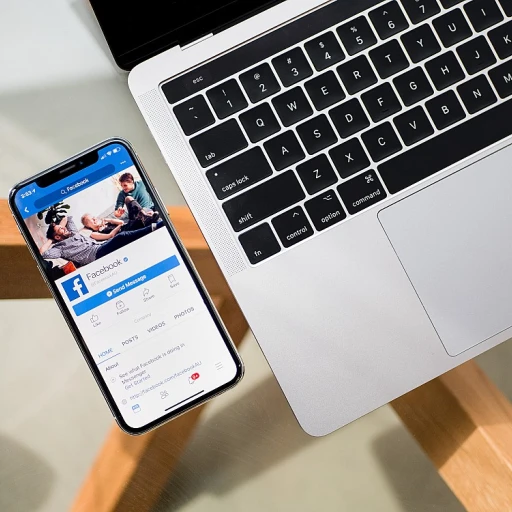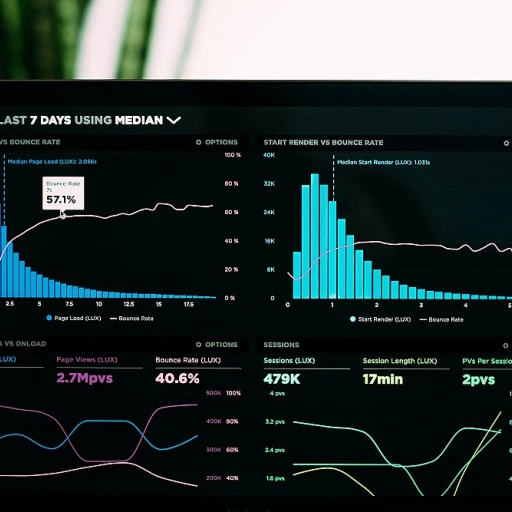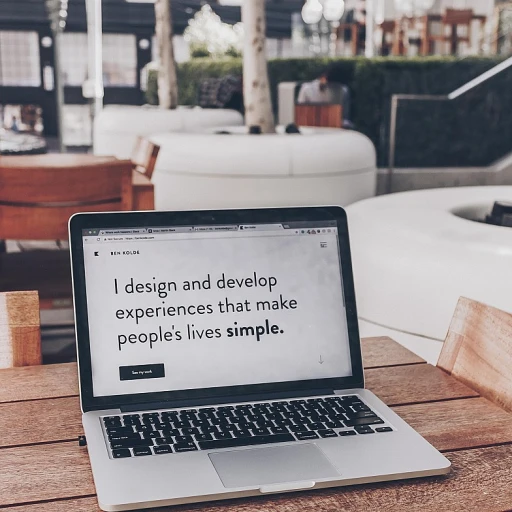
Understanding Health Enterprise Partners
The Role of Health Enterprise Partners in Social Media Strategies
Health Enterprise Partners (HEP), working at the intersection of health and social media, provides invaluable insights and strategies to connect healthcare enterprises with their targeted audiences. Leveraging the power of social platforms, HEP helps bridge the communication gap, enabling private equity firms and healthcare services to effectively reach and engage with patients, professionals, and stakeholders.
In the complex world of healthcare, the role of these partners extends beyond mere investment. They actively aim to drive policy creation and foster an ecosystem of transparency within health systems. Institutions driven by venture capital, private equity, and other strategic funds find networks and resources through these partnerships, which support them in navigating the evolving space of online health information.
With the advent of social media, the landscape of healthcare communication has dramatically transformed. It is no longer limited to traditional modalities; instead, social media serves as a real-time platform for news dissemination and stakeholder engagement, paving the way for new healthcare solutions and trends. For instance, "The Rise of Fitness Influencers" blog post shares insights on how social media is transforming traditional healthcare dynamics.
As private equity and healthcare systems evolve, collaboration between health enterprises and social media influencers becomes strategic rather than optional. The need for comprehensive privacy policies, cookie policies, and protecting data becomes paramount to build trust and maintain transparency with audiences. An equity firm must effectively utilize its resources and capital to translate its initiatives into relatable and impactful communication pieces, reaching their intended audience.
The Intersection of Health and Social Media
The Confluence of Social Media and Healthcare
In the digital age, the convergence of health and social media presents unique opportunities and challenges for both consumers and enterprises. This dynamic landscape is particularly crucial for health enterprise partners as they seek to connect with audiences on platforms that are increasingly relied upon for healthcare information. The integration of social media into the healthcare sector has fostered greater access to information, allowing individuals to engage with health content more directly and personally. Consumers are now leveraging platforms like LinkedIn and other social media sites to explore health-related news, policy updates, and innovative healthcare services. However, the intersection of health and social media comes with inherent challenges that require strategic responses. While privacy policies and data protection, such as cookie policies, are paramount, enterprises must also address the ethical considerations of disseminating healthcare information online. Furthermore, partnerships between health-related firms and social media influencers need thoughtful alignment to maintain credibility and trust. In navigating this landscape, health enterprises, including private equity firms and investment partners, must adopt a personalized strategy. They are tasked with weeding through the complex network of influencers to find those who align with their core values and objectives. Successful partnerships in this realm are often characterized by mutual goals and dedication to health equity. Investing time in crafting strategic collaborations between healthcare services and social media is key. It enables enterprises to enhance their visibility and influence in the health systems sector. As such, effective collaboration will require ongoing evaluation and refinement to stay ahead of emerging trends. For more insights on leveraging holistic health strategies to foster authentic engagement, explore this detailed guide.Challenges Faced by Influencers in the Health Sector
Addressing Barriers in Health Influencer Bonds
In the dynamic landscape where health meets social media, influencers encounter unique challenges. This intersection brings together the critical task of sharing trusted health information, with the complex world of healthcare systems. Optimizing wellness communications, especially through social platforms, is riddled with hurdles that influencers must navigate skillfully.
One significant challenge is maintaining credibility while engaging a diverse audience. In a sector as sensitive as health, influencers seek partnerships with reputable healthcare enterprises to bolster the trustworthiness of their content. Such enterprises often have robust privacy policies and data protection measures, laying the groundwork for credible engagements.
However, influencers must also juggle the stringent guidelines set by healthcare privacy policies. This entails understanding and respecting privacy rights, which can be an intricate task when dealing with varied health systems. Striking a balance between informative content and protecting personal data is a tightrope that influencers must walk with precision.
Moreover, influencers face the challenge of differentiating their content in an oversaturated market. The infusion of venture capital and private equity into health enterprises in the United States signals a landscape ripe with information dissemination but also fierce competition. Influencers aiming to break through need to craft strategies that resonate authentically with their audiences while aligning with enterprise goals.
The strategic role influencers play is evolving, with the need for insightful enterprise partnerships becoming more pronounced. By staying connected through platforms like LinkedIn, influencers have the ability to align with policy changes and sector news, enhancing their relevance and outreach.
Consistency of message, collaboration with equity firms, and strategic use of emerging technologies are pivotal in overcoming these hurdles. Enterprises actively seeking to invest in such collaborations often consider influencers who can drive policy conversations, adding valuable insights to the healthcare dialogue.
Faced with these challenges, influencers must be innovative, leveraging their networks and resources to drive impactful change in the healthcare sphere. By understanding the delicate balance required, they can effectively navigate these challenges, enhancing their social media impact.
For more insights, explore how innovative tech ventures are shaping the future of health influencer strategies at worldwide science stories.
Strategies for Effective Collaboration
Effective Strategies for Engaging Collaborations
When considering collaborations with Health Enterprise Partners (HEPs) in the social media arena, it is crucial to implement strategic approaches that foster successful partnerships. Influencers in the health sector often face the challenge of creating content that is authentic, reliable, and impactful. Leveraging the right strategies can bridge the gap between health equity and public perception, ensuring both influencer engagement and audience trust.
- Building Trust and Credibility: Successful collaborations begin with trust. Influencers should ensure alignment with HEPs that prioritize ethical practices and transparency. This includes being aware of privacy policies and maintaining user privacy, a vital component in healthcare services.
- Understanding Policy and Regulations: Awareness of the current healthcare policies is key. Influencers and enterprise partners must navigate complex regulations to ensure compliance, especially regarding healthcare systems and private equity investments within the United States.
- Leveraging Expertise and Authority: Aligning with HEPs can enhance the authoritative voice influencers have in the health sector. These enterprise partners often support influencers by providing expert insights which enhance content credibility.
- Investing in Technology and Innovation: Keeping abreast of technological advancements allows influencers to collaborate effectively with healthcare private equity firms. Innovations can transform content delivery, making it more immersive and engaging for the audience.
- Continuous Learning and Networking: Influencers should actively engage with industry news and events, such as webinars organized by investment firms or policy discussions on platforms like LinkedIn. This not only keeps them updated but also opens potential collaboration opportunities.
Creating long-term, impactful relationships between social media influencers and Health Enterprise Partners demands a clear strategy. By focusing on trust, compliance, expertise, technology, and ongoing education, influencers can ensure their efforts drive value and foster meaningful change in the health sector.
Case Studies of Successful Partnerships
Successful Collaborations in the Health Sector
In the dynamic world of social media, partnerships between health enterprise partners and influencers have proven to be a powerful strategy for amplifying messages and driving engagement. These collaborations often involve a blend of expertise from healthcare services and the innovative reach of social media influencers.
Case Study: Health Systems and Influencer Partnerships
One notable example is the collaboration between health systems and influencers who focus on healthcare equity. By leveraging the influencers' platforms, health systems have been able to reach a broader audience, promoting messages about healthcare access and policy changes. This approach not only enhances public awareness but also fosters a community of informed individuals who are more likely to engage with health initiatives.
Private Equity Firms and Health Influencers
Private equity firms, such as those based in New York, have also recognized the value of partnering with health influencers. These firms often invest in healthcare services and use influencer collaborations to highlight their investments and the impact on health care. By connecting with influencers, they can effectively communicate their strategies and the benefits of their investments to a wider audience.
Innovative Strategies for Engagement
Successful partnerships often involve a clear strategy that aligns the goals of both the health enterprise and the influencer. This includes setting clear objectives, understanding the target audience, and creating content that resonates with viewers. For instance, a healthcare private equity firm might partner with an influencer to create a series of informative videos about health policy changes, ensuring the content is both engaging and educational.
Building Trust and Authority
Trust is a crucial element in these partnerships. Influencers who have established credibility in the health sector can lend their authority to the messages promoted by their partners. This trust is built through consistent, transparent communication and a genuine commitment to improving health outcomes.
As the landscape of social media continues to evolve, the role of health enterprise partners in influencer collaborations will likely expand, offering new opportunities for impactful engagement and positive change in the healthcare sector.













